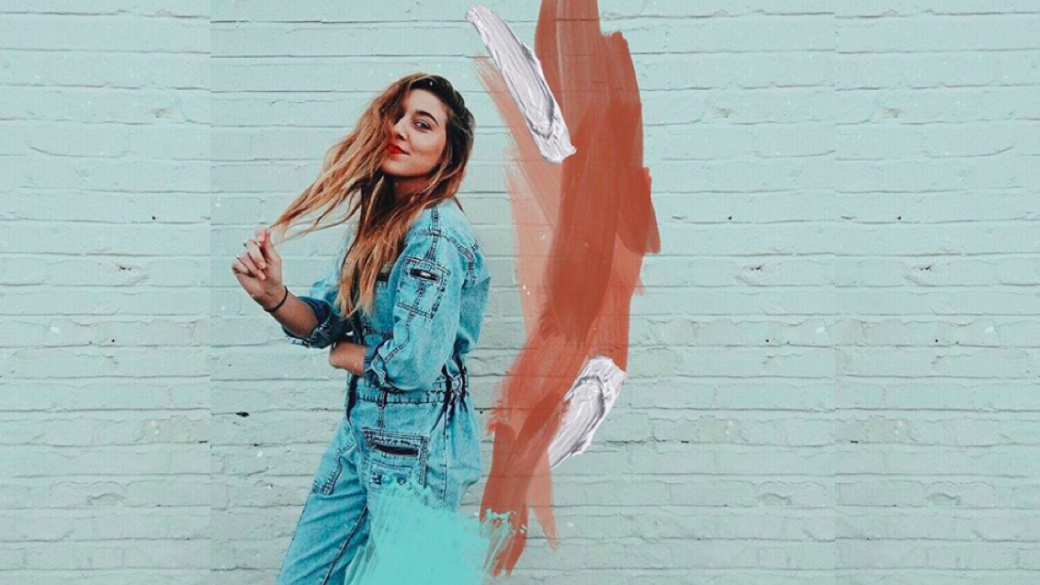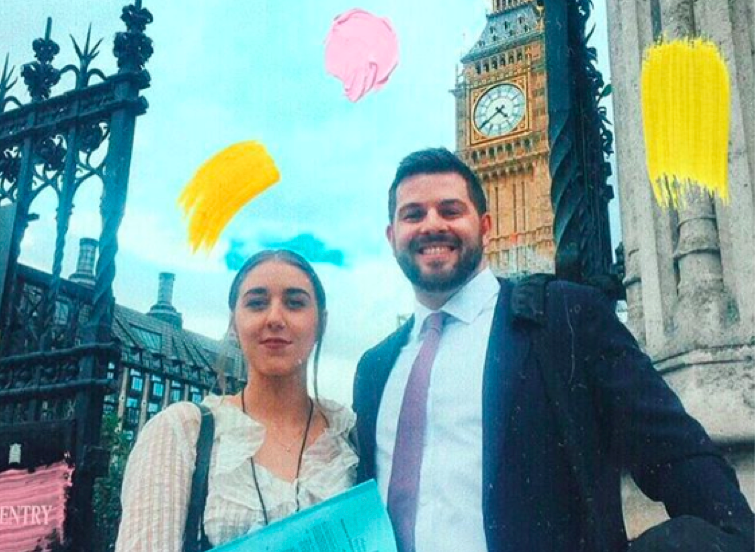Following a whirlwind 18-month nationwide campaign, the so-called ‘Upskirting Bill’ has passed the final stages in Parliament and is now set to become law. Gina Martin, 26, who campaigned for the law after she was ‘upskirted’ at a festival in London in 2017, has said she is “over the moon”.
Upskirting happens when a person takes a photo up another person’s skirt without their consent. The resulting photo can be saved on the perpetrator’s phone and sent to others, and/or be distributed on the internet through social media. There were 78 reported instances of upskirting in England and Wales between 2015 and 2018.
Why The Need For A New Law?
Three women tell the @VictoriaLIVE about their experiences of "upskirting" amid calls for it to be made a criminal offencehttps://t.co/pKIxyzJHq0 pic.twitter.com/HqZUanIOEm
— BBC News (UK) (@BBCNews) February 20, 2018
Gina Martin was watching The Killers with her sister at a festival when she noticed two men standing next to her looking at an image up a girl’s skirt on one of their smartphones. To her horror, she realised the picture was of her. She grabbed the phone and eventually spoke with the police. After (unhelpfully) telling the man to delete the photo (which he did, along with Martin’s evidence), the police officer told Martin there was nothing she could do.
The reason for this is that, back in 2017, upskirting fell between the cracks of two crimes – “Voyeurism” and “Outraging Public Decency”. It didn’t fit within “Voyeurism” because she was not doing a “private act” when it happened. Equally, because no one witnessed the act, it did not outrage public decency either.
How did Martin Change the Law?
 Credit: Instagram Gina Martin
Credit: Instagram Gina Martin
After posting on Facebook about her experience, which went viral, Martin launched a petition to add upskirting as a criminal offence to the United Kingdom’s Sexual Offences Act 2003. Doing this, she said, would enable the law to, “specify clearly that this is a sexual offence with a victim”.
The petition was picked up by Liberal Democrat MP Wera Hobhouse who introduced a private member’s bill criminalising upskirting before the House of Commons. However, progress was temporarily halted when Conservative MP Sir Christopher Chope objected to the bill, which was met by shouts of “shame” from other MPs. Although Chope later insisted he supported the bill, and merely opposed private bills in principle (due to a lack of parliamentary debate), he had effectively blocked the bill.
However, the bill caught the eye of Prime Minister Theresa May and Conservative MPs David Gauke and Lord Keen of Elie put it before Parliament days later.
On 15 January 2019 the Bill was approved in the House of Lords, meaning once it receives Royal Assent (where the Queen gives the bill her approval), it will become law. Baroness Chakrabarti rose in the House of Lords to “celebrate a moment of genuine positivity, collaboration and leadership in this place and beyond it.” She also paid tribute to Martin “whose original indignity was converted into a powerful campaign to do something important that we can all agree on.”
Any Outstanding Issues?
 Credit: Unsplash Tamara Bellis
Credit: Unsplash Tamara Bellis
Law professor Clare McGlynn argued that the bill should include a right of anonymity in court for upskirting victims, a provision that was not included in the final bill. In her oral evidence before the Public Bill Committee, Martin said that issue should be “dealt with properly and with scrutiny at a later date”. This bill, Martin said, should “afford women the protection they deserve as soon as possible”.
Other controversial issues include whether the perpetrator of upskirting needs to act with the purpose of either sexual gratification or humiliation of the victim. Conservative MP Maria Miller argued these purposes are irrelevant given 75% of offences in the Sexual Offences Act 2003 do not require any such motive. However, motives remain in the approved bill, with perpetrators having to act with the aim of “obtaining sexual gratification”, or “humiliating, alarming, or distressing” the victim to be convicted.
Has the UK Lagged Behind Other Countries?
The wider world is getting to grips with sexual assault in the age of pervasive digital technology and social media. New Zealand introduced a ban on “intimate visual recordings” (which covers upskirting) in 2006. The United States Congress enacted a similar “Video Voyeurism” law in 2004, though it only applied to upskirting occurring on federal property (such as U.S. ships or national parks). The majority of states in the United States have enacted upskirting laws, though some, including Alabama, have not.
New Zealand introduced a ban on “intimate visual recordings” (which covers upskirting) in 2006.
Scotland criminalized upskirting in 2010 by amending the ‘Voyeurism’ provision in the Sexual Offences (Scotland) Act 2009.
Something to Celebrate
The work of protecting women from sexual assault in the digital age is far from done, as this recent article on cyber-stalking and tech-enabled harassment highlights, but Gina Martin has made an important inroad into ensuring respect, dignity, and freedom to the female body. Well done Gina!
For more on Gina’s journey on upskirting see:
- Meet Gina Martin, The 25-Year-Old Who Wants to Make Upskirting a Sexual Offence in England and Wales
For more on image-based sexual abuses follow Prof. Clare McGlynn and Prof. Erika Rackley on Twitter.
Featured image: Gina Martin and lawyer Ryan Whelan Credit: Instagram Gina Martin







